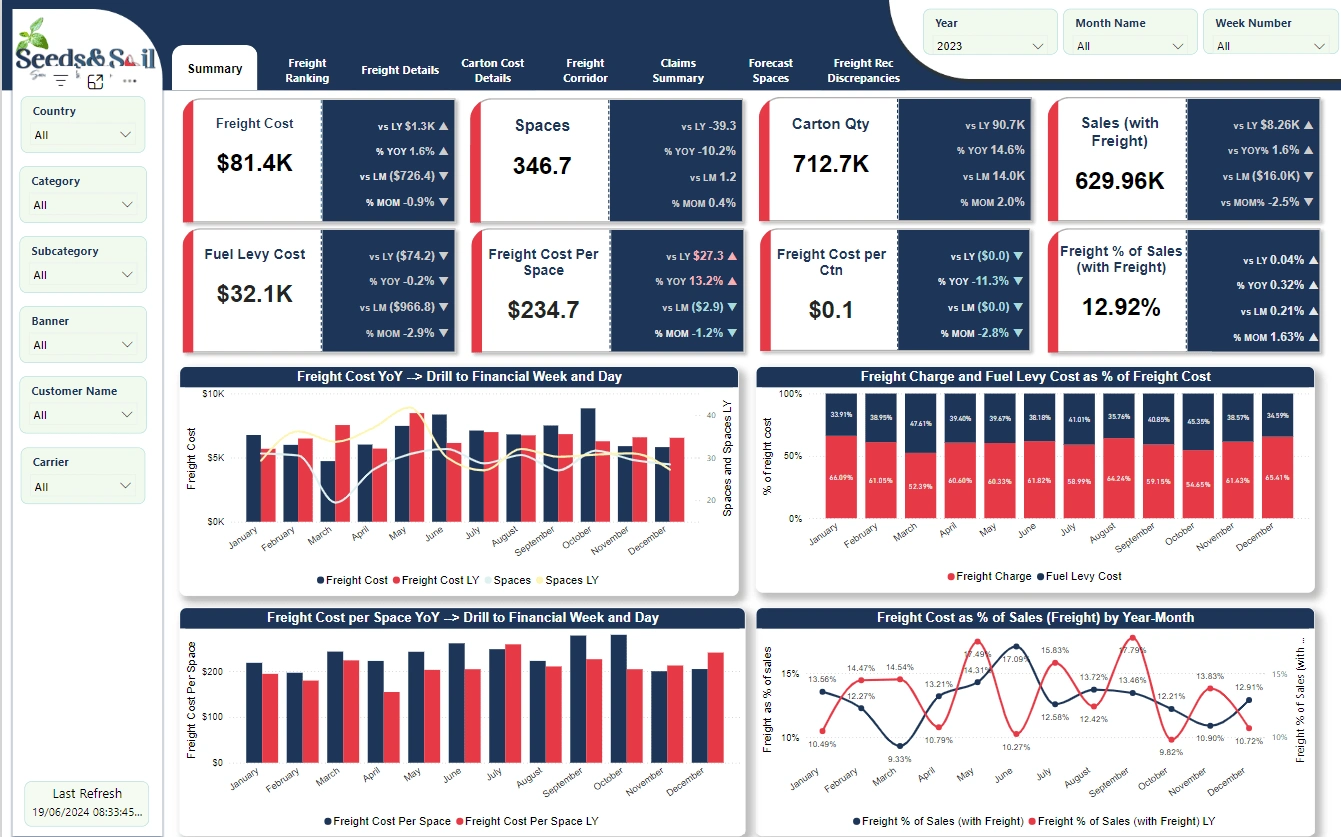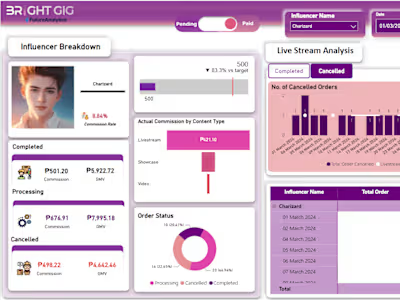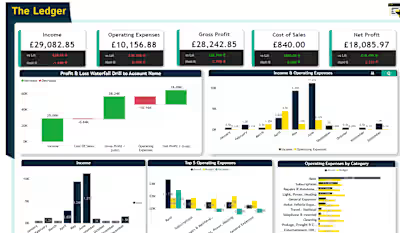Enabling Logistics Insights using Microsoft Fabric and Power BI

For Australia's second-largest agriculture company, transitioning to Microsoft
Fabric posed significant data management and analysis challenges.
The Challenge
The company grappled with complex relationships between data tables across various
databases. They needed to ensure data reliability and effectively visualize
intricate analytics, such as categorizing top 20 entities while mapping out
extensive freight routes.
The Solution
Utilizing Microsoft Fabric, we consolidated the data into a lake house architecture.
We then employed dbt to meticulously craft a modular approach for the end
data model, resulting in a streamlined star schema. This schema integrated
various fact groups with related dimensions, including role-playing dimensions,
thereby facilitating a high-performance data model for Power BI.
The Impact
The newly established data model enabled rapid refresh rates, with updates every hour,
allowing end users to swiftly make informed decisions daily. This significantly
enhanced their ability to optimize freight routes and manage carrier
relationships.
Conclusion
This case study highlights the critical role of Microsoft Fabric and dbt in
transforming complex data into a coherent and efficient analytics platform. By
achieving a high-performance data model, the company could leverage real-time
insights to streamline operations and enhance strategic decision-making.
Like this project
Posted Apr 13, 2024
Australia's second-largest agriculture company enhanced data management by adopting Microsoft Fabric and dbt, enabling near time insights.








